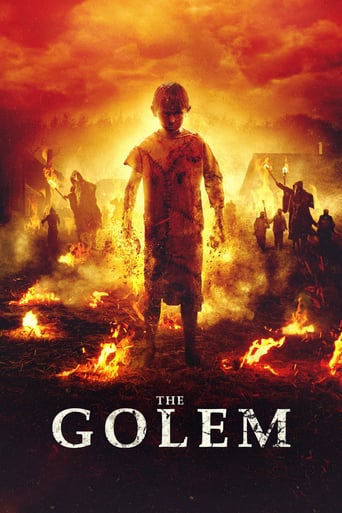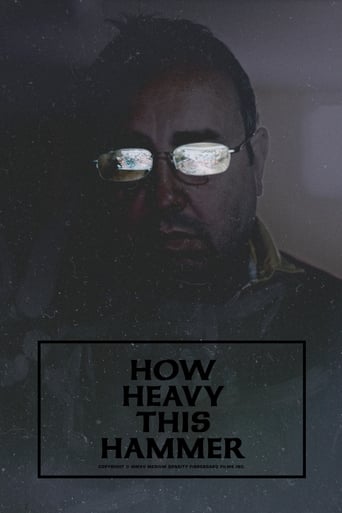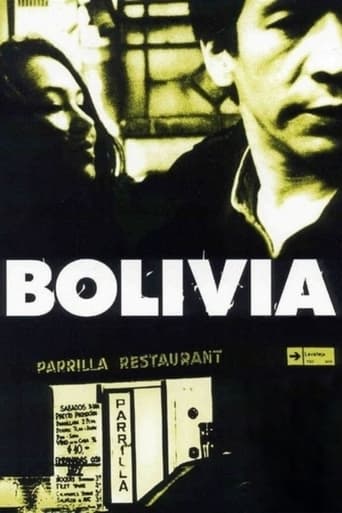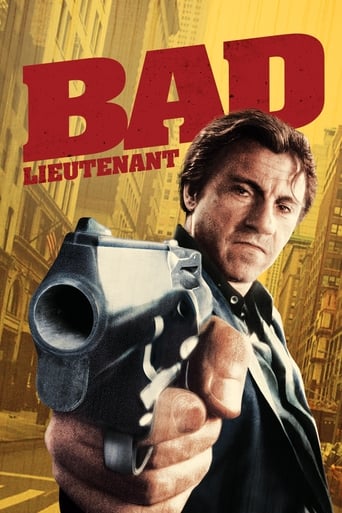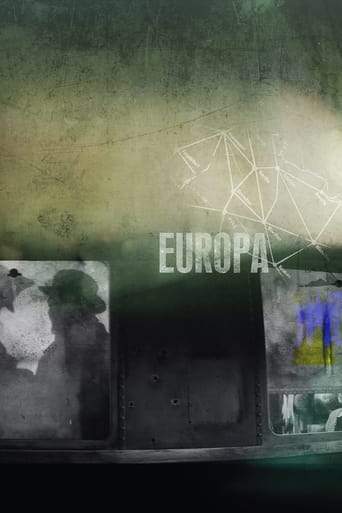


Europa
A young, idealist American gets a job as a train conductor for the Zentropa railway network in postwar, US-occupied Frankfurt. As various people try to take advantage of him, he soon finds his position politically sensitive, and gets caught up in a whirlpool of conspiracies and Nazi sympathisers.
-
- Cast:
- Jean-Marc Barr , Barbara Sukowa , Udo Kier , Ernst-Hugo Järegård , Erik Mørk , Jørgen Reenberg , Henning Jensen


Similar titles
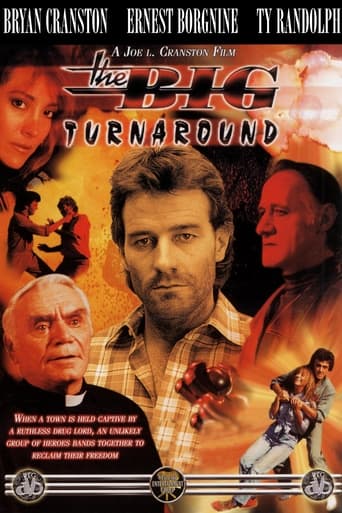


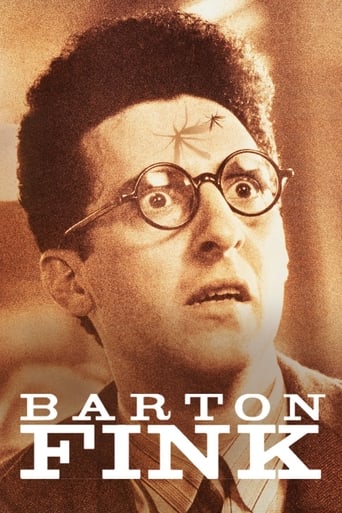
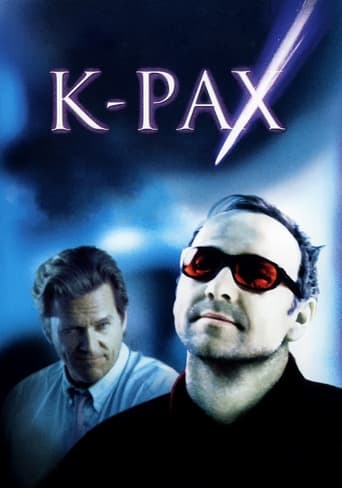

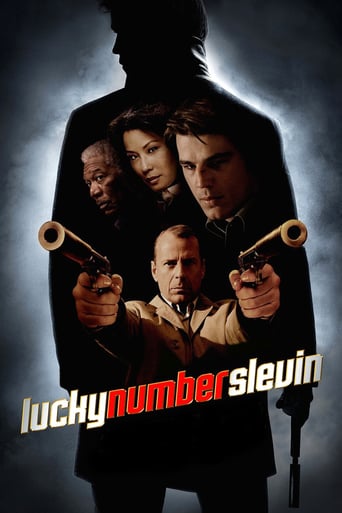
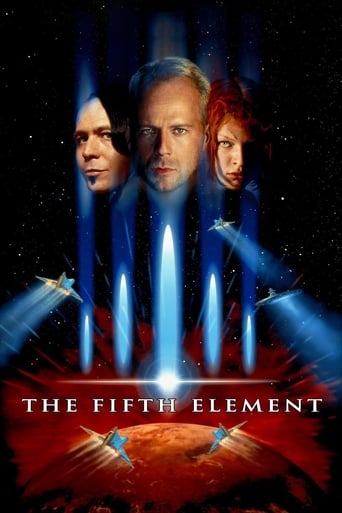
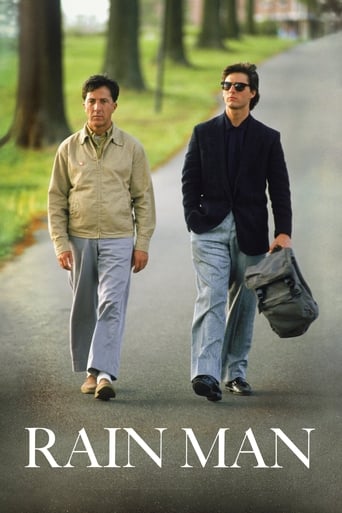
Reviews
Load of rubbish!!
I don't have all the words right now but this film is a work of art.
Blistering performances.
Through painfully honest and emotional moments, the movie becomes irresistibly relatable
The truth of the world is the tomb of idealism. Borrowing the rudiment of a commercial story, director Lars von Trier, made this theme, which is slightly alienated from the mainstream audience, have an unparalleled power. Through a unique style of photography and way of telling, this film shows a typical aesthetic achievement that is usually available to artists in the early days of their artistic career. Therefore, although objective conditions and abilities can be improved over time, the soul of the art works can never be replaced. From this perspective, this film is a typical case.
In 1995, Lars von Trier and Thomas Vinterberg created what is known as the 'Dogma 95 Manifesto'--a series of rules that these and other Danish avant-garde film makers would adhere to the in the future. I mention this because although "Europa" was made by von Trier, the film does not at all adhere to these rules--as the film was made four years before this film movement was deliberately created. Von Trier's use of black & white film (interposed throughout the film with muted color), sets, incidental music, non-hand held camera, the use of a crane for a few shots and setting the film in the past were all techniques he would eschew only four years later. I guess he was just getting it out of his system! The beginning of "Europa" is very, very strange. You hear the voice of Max Von Sydow and he leads the audience in a hypnotic induction--taking you back to the year 1945--just after WWII. And, later, you will once again hear the voice of Von Sydow talking throughout the film like a hypnotherapist--a VERY unusual way to narrate this film.The film plot revolves around an odd and rather non-emotive American, Leopold Kessler. It seems that he was a pacifist during the war and has moved to Germany to work for the railroad. This is odd, I know, but it gets a lot more unusual than that... I would try to explain the story, but frankly it all becomes very surreal and a bit weird. Additionally, while the film is supposed to be about a group of post-war terrorists named 'Werewolves', the film does NOT attempt to provide an actual history lesson or really discuss their actions. My advice is like all surreal films, don't try to understand it or make sense out of why von Trier made it--just absorb it and make of it what you will (or not).My feeling about the film is that I liked it because of its bizarreness and innovative cinematography. Sure, there are a few sloppy portions (such as the dubbing of the Colonel's voice) but what's important is that this film was made in 1991. Using computers to make this sort of project would be pretty easy today--but back in 1991 personal computers were still a bit rare and amazingly underpowered. Yet, von Trier was able to use black & white mixed with occasional splashes of grainy color--a difficult trick in its day. There are also very very beautiful camera shots throughout the film (such as the bombed out church in the snow) which are achieved through superimposing characters into scenes he shot previously. Totally weird, confusing but visually arresting. This is NOT a film for the average person--they probably wouldn't have the patience or would demand a more coherent and traditional plot. But, it's the sort of thing that is worth seeing once--it's that unusual and unique. The style, the narration, the cinematography and the music provide a once in a lifetime sort of experience.If you get the DVD, be sure to see if it has the French documentary "The Making of 'Europa'", as it explains the various very innovative camera tricks that were used. Additionally, just how complicated it all was to make is revealed...and it took two years to make!
Europa is an attempt to treat the subject of Nazism and World War II in a post-war setting by Lars Von Trier, some of whose later movies, including Dogville (2003) and Anti-Christ (2009) stood out for their brilliant originality. However, Europa, being one of his earlier movies (from 1991), fails – apart from some original moments – to come up with any kind of fresh or new perspective. Maybe in its time, the movie's presentation, where most of the movie is in black and white except for certain important objects which are shown in color, could have been appreciated more. However after having been subjected may times to another, more well-known, Nazism-World War II movie that came later (Schindler's List, 1997) makes one feel that the color alternation does not give any respite to its generally dull and tedious method of presentation of its subject.We start off by hearing a narrator who goes on for the entire movie, instructing the viewer to go through the exact things experienced by the protagonist, Leonard Kessler (Jean Marc-Barr). In the beginning scene, the narrator asks the viewer to "go deeper" and we are given a count to "go deeper and deeper". This seems like some form of mystical ritual or "meditational" thing, something that seems somewhat inappropriate for such a somber subject as Nazism-World World War II. Later however, the narrator tells the viewer the exact things the protagonist is experiencing. This seems to be a somewhat original perspective in a movie and can be appreciated.The femme fatale anti-heroine, Katharina Hartmann, is portrayed excellently by Barbara Sukowa, who puts in an excellent performance, being the saving grace as far as individual performances of actors go. The protagonist, Kessler, seems to be too idealistic in his beliefs and actions for most members of any audience to identify with. He basically fumbles through the entire movie and his character is one who seems to be completely spineless. Maybe the intended character was not meant to be this bad, but the actor who portrays this character certainly does not lend any special or personal touch to make this character stand out.Overall, this movie tries to present the scenario in Germany after the end of World War II and the harsh realities of the Allied occupation and the remnants of Nazism, but fails to go beyond an excessively dull and drab mode of presentation of the subject. One certainly has to commend Von Trier for even attempting to treat such a subject as post-war Germany, but his effort could have been a little better for someone of his caliber for, certainly, such a sensitive subject would have been botched by many lesser directors, including the copycat director of Schindler's List, but perhaps the reality of the situation continues to be too tragic to be soberly portrayed on screen.
"You will now listen to my voice. My voice will help you, and guide you still deeper into Europa. Every time you hear my voice, with every word and every number, you will enter a still deeper layer, open, relaxed and receptive. I shall now count from one to ten. On the count of ten, you will be in Europa. I say; One, and as you focus your attention entirely on my voice you will slowly begin to relax. Two, your hands and your fingers are getting warmer and heavier. Three, the warmth is spreading through your arms, to your shoulders and your neck. Four, your feet and your legs feel heavier. Five, the warmth is spreading to the whole of your body. On six I want you to go deeper. I say; Six, and the whole of your relaxed body is beginning to sink. Seven, you go deeper and deeper and deeper. Eight, on every breath you take, you go deeper. Nine, you are floating. On the mental count of ten, you will be in Europa. Be there at ten. I say; Ten."And on the narrators command we are transported into Europa; Lars von Trier's dark and brooding film noir masterpiece that deals with themes of guilt and manipulation in post-war Germany. The protagonist is Leopold Kessler, an idealistic American of German descent who has come to Germany to work with his uncle as a first-class sleeping-car conductor. There he meets and is seduced by a strikingly beautiful young woman named Katharina, whose father owns the rail company Leopold now works for. As he is drawn into Katharina's world he encounters the problems Germany is trying to face; a sense of national guilt over their countries actions during the war, a dark depression settling on Germany's national psyche and the realities of living in an occupied and defeated country. The occupiers, meanwhile, concern themselves with administering tests to determine German citizens culpability in Nazi actions during the war, and dealing with the insurgence threat of the Werewolf (a group of commandos and Nazi sympathisers set on sabotaging Allied interests). But as Germany faces it's past, so must Katharina, admitting to the now smitten Leopold that she used to be a member of the dreaded Werewolf group.In a way, the story is almost incidental in the face of the spectacle of Europa. The plot is a standard thriller affair wrapped in allegory, with characters, music and cinematography so deeply recalling film noir that you have to wonder whether von Trier is offering up a pastiche or a homage, but it's through his wonderful cinematic technique that Europa becomes something truly unique. Using all sorts of visual trickery such as double exposure, superimposition, aft and foreground projection, highly-choreographed, Hitchcock-like camera movements and splashes of unexpected colour in the deep and oppressive high-contrast black and white world of Europa (a technique Spielberg would later ape to widespread acclaim in Schindler's List), von Trier presents a composite image that shows the films larger themes. Through the hypnotic presence of Max von Sydow's narrator who commands Leopold on his journey, the clever use of colour and interleaved images, the familiar plot and noir sensibilities, the way the occupying US forces manipulate the situation for their own gain and the way Katharina manipulates Leopold, the viewer is in turn expertly manipulated and taken along for the ride. The plot offers no surprises, everything is foreshadowed and hinted at via one method or another, but through von Trier's manipulation the scenes remarkably lose none of their impact. Undoubtedly Europa is a cinematic masterpiece, but more for von Trier's technique and than anything else.

